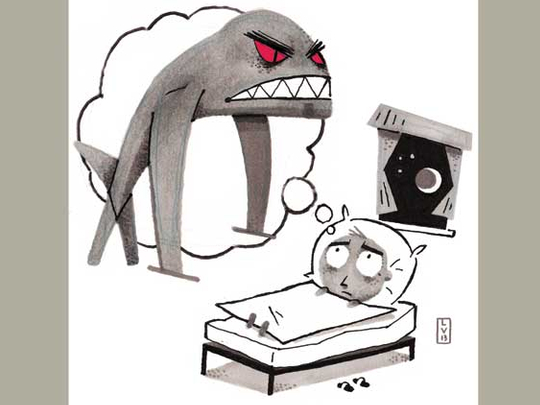
International awareness of — and the resultant disgust with — American drones is finally gathering momentum. For more than ten years the US, particularly under President Barack Obama, has had a free hand in choosing who lives and who dies in certain parts of the Muslim world. It has been able to do this by duping people into believing that drones are precision instruments only targeting those who deserve to be killed. At home, the US government pushes collusion on the complacent American public by marketing the idea of fewer “boots on the ground” and therefore fewer American deaths.
Shockingly, it is not just the US government that is at fault for the continuance of drone strikes. Drone-affected countries are themselves complicit in the campaign. Indeed, the government of Yemen has gone so far as to request that the US do the dirty work for them. One may recall that ex-President Ali Abdullah Saleh actually offered the country’s Air Force as a scapegoat. More recently, the incumbent President Abd Rabbo Mansour Hadi has been quoted as saying that he personally approved each strike and defended their accuracy. Even Yemen’s Foreign Minister, Abubakar Al Qirby, has been shown to be equally implicated through his lamentation about the lack of enough military technology for Yemen to be able to do the job itself.
In spite of this complicity, the tide is turning against drone warfare as the truth is slowly revealed. Voicing rare public opposition, Yemen’s Human Rights Minister, Hooria Mashhoor, has suggested the use of alternative “strategies [that] can be applied on the ground without harming civilians and without leading to human rights violations”. Why is Hadi not listening to his own minister? Leading opinion-makers and human rights organisations, too, are disproving the drone’s purported precision in finding that estimates of civilian vs militant drone deaths are wholly inaccurate. Spencer Ackerman, national security editor for Guardian US, wrote that “... a US military adviser has found that drone strikes in Afghanistan ... caused 10 times more civilian casualties than strikes by manned fighter aircraft”. The Human Rights Institute at Columbia Law School has found an even greater discrepancy — up to 2,300 per cent — during its recount of civilian casualties of the 2011 Pakistan drone strikes.
We can, of course, blame the stats on semantics. After all, what is the definition of a civilian? What about a militant? According to the Barack Obama administration, a militant is virtually anybody in that it includes “all military-age males in a strike zone”. And the justification? Because “[the] innocent ... don’t hitchhike rides in the back of trucks headed for the border with guns ...” The US official responsible for the latter statement is obviously unacquainted with the commonplace nature of AK-47 rifles and machine guns in parts of the Middle East and the custom of firing these weapons in celebration. Yemeni civilians, too, are taking a stand. Travelling 7,000 miles (11,265km) to make their views known, first Faisal Bin Ali Jaber, then Farea Al Muslimi have spoken in front of the US Congress about the brutality of the US drone strikes on Yemen.
Jaber was also there for answers. His open letter to Obama asking for an explanation went unacknowledged. He wanted to know why his brother-in-law and his nephew were killed in a drone attack when both men had clearly been outspoken against Al Qaida. As Scott Lucus, a professor at the University of Birmingham and specialist in US and British foreign policy and international relations, has remarked: “Faisal spent the week struggling to pierce the veil of secrecy and anonymity over the Obama administration’s drone strike programme, ... He did not have much luck.”
Following up on his testimony to the US Congress, Yemeni journalist, Al Muslimi, last week addressed an audience at a meeting hosted by the Ottawa Peace Assembly (OPA) and the International Civil Liberties Monitoring Group. Speaking from the heart, Al Muslimi was critical of the Yemeni government’s support of the drone programme because it does not differentiate its victims. He assured the audience that many drone targets were well-known men who could easily be arrested in order that the innocent be spared. He added that the secrecy surrounding the execution list was detrimental to the programme as ordinary Yemenis no longer knew whom to befriend for fear of being guilty by association and thus targeted. He further called the drone strikes the most effective PR campaign for Al Qaida, the popularity of which has soared since the Obama administration exponentially increased the number of strikes.
But Al Muslimi’s most potent argument concerned the psychological damage of drone warfare. Yemen’s children particularly have suffered in that they live day by day, not knowing when the next attack will come and whether they will be the next targets. Using the deepest shade of black humour, Al Muslimi recounted that in patriarchal Yemen, a mother would threaten to call her child’s father if he misbehaved or refused to go to bed. Now, he says, mothers have only to say “go to bed immediately or I will call in the drones!”
Dr Qais Ghanem is a retired neurologist, radio show host, poet and author. His novels are Final Flight From Sana’a and Two Boys from Aden College. His latest non-fiction work is My Arab Spring My Canada (Amazon.com) and his combined English/Arabic poetry book is From Left to Right. Follow him on Face Book and Twitter at www.twitter.com/@QaisGhanem











